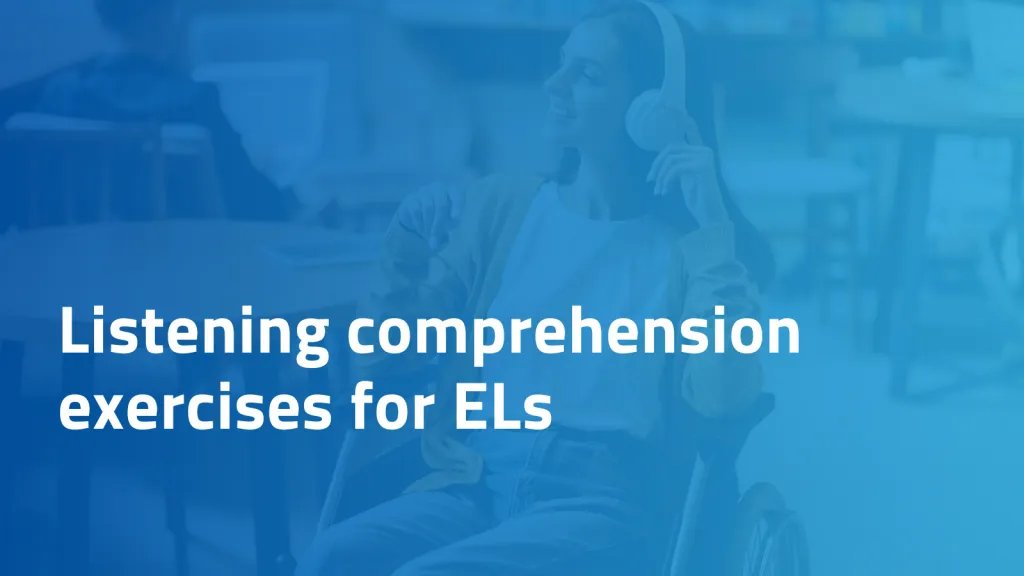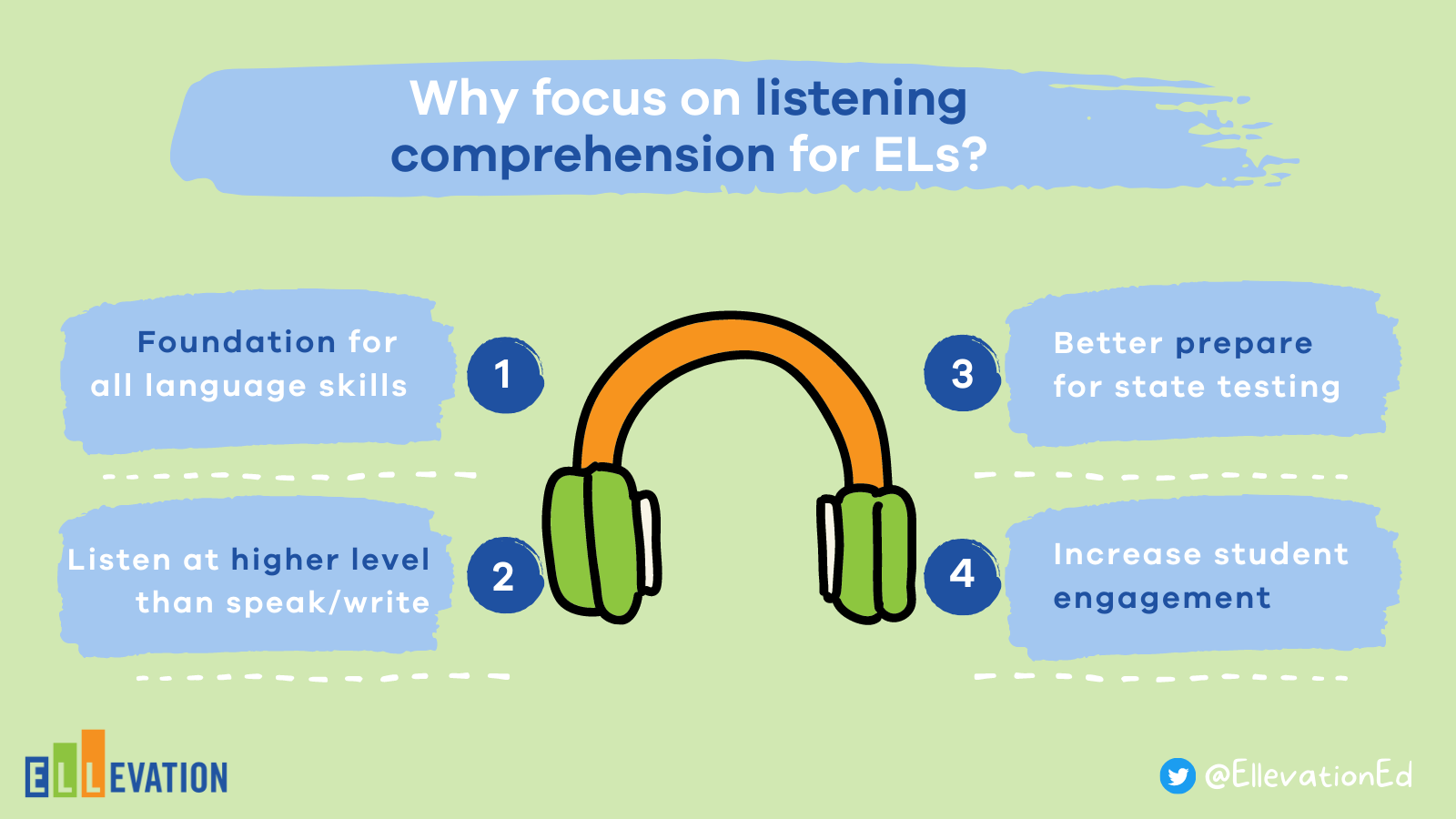See how Ellevation's unified ELD solution can drive student growth. Register now for our webinar on February 18.
Listening comprehension exercises for ELs


Listening comprehension exercises for ELs
“80% of what we learn, we learn through listening.”
Why is creating deliberate, high-quality listening exercises for multilingual learners so important? What are some authentic ways to assess listening comprehension that will better gauge ELs’ understanding while also preparing them for important state assessments? How can in-class listening activities help ELs to build background knowledge and master academic vocabulary - two of the biggest hurdles facing language learners?
We discuss these questions and much more with our guest Monica Brady-Myerov: public radio journalist, founder and CEO of Listenwise, a listening skills company and author of the upcoming book: Listen Wise: Teach Students to Be Better Learners.
Monica explains the value of using podcasts accompanied by high quality listening comprehension exercises in the classroom for English learners. Find the whole conversation on Spotify, and a few key points below:
Four ways using podcasts for listening comprehension supports your English learners:

Listening sets the foundation to develop advanced language skills.
“Oral language and word recognition that you get through listening are really the foundation for the development of your more advanced language skills.”
In fact, oral storytelling is the first documented form of pedagogy. Researchers believe that cave dwellers taught their children about surviving in the world through oral storytelling. Now, we’re experiencing a renaissance of this period with the popularity of learning through podcasts - and many students are already engaging with them outside of class. Listening has long been used as a way to learn both content and language, but given recent trends, this could be a particularly powerful moment to invest in high quality listening comprehension strategies.
Students can listen at a higher level than they may be able to speak or write at.
“You can scaffold it for different levels and you're giving your students incidental exposure to vocabulary through listening. That helps them not only learn the meaning of new words, but it helps them hear different sentence structures and language in context and gain background knowledge.”
Listening allows students to stretch their vocabulary and understand new words through the context in stories that are at a higher level than they would be able to access the information in other formats. Podcasts can be used in any subject and can expose students to a rich variety of content. Since students reading or speaking at a lower level are able to listen to a story that is a higher level, the entire class can engage with the same listening activity together. Additionally, virtually all listening platforms allow listeners to play content slower or faster, which provides a built in scaffold for students at varying levels.
Better prepares students for testing and reclassification assessments.
While we certainly do not advocate or recommend “teaching to the test”, we realize the importance of students - and especially multilingual learners - performing well on state tests and ultimately being able to succeed on reclassification exams. Monica explains that listening comprehension activities built around a podcast or sound clip are closer to what students will be asked to do for these types of assessments.
“Many teachers are pairing students up to speak to each other, but it is really hard to emulate what they're going to see in a WIDA level access test let's say or in the TELPAS in Texas. Right now, what we have to consider is that, those tests are all online too. They're digital, so they are very different than a classroom experience.”
Increase student engagement in a unique way.
“When you're listening, your brain is far more engaged in many different parts than when you're reading or looking at something. It's got your visual cortex stimulated, your olfactory part of your brain is stimulated. It's actually one of the most engaging activities you can do.”
When students listen to a story, they are likely picturing elements from the story in their head and making connections to their own lives and experiences. This type of high-level processing while listening is key for multilingual learners in order to build academic vocabulary and background knowledge.
Find the full episode transcript here.
Episode Resources:
- Listenwise, a listening skills company
- Listen Wise: Teach Students to Be Better Learners book
Monica Brady-Myerov is a content area specialist in audio and its use in the classroom and an expert in podcasting, fact-based reporting and narrative storytelling. She is a 25-year veteran public radio journalist, and is the founder and CEO of Listenwise, a listening skills company. She is the author of the upcoming book: Listen Wise: Teach Students to Be Better Learners to be released by Wiley in April 2021. The book has personal anecdotes from the author and accessible excerpts from the latest neuroscience of listening and auditory learning, making it a critical resource that will explain why listening is the missing piece of the literacy puzzle.